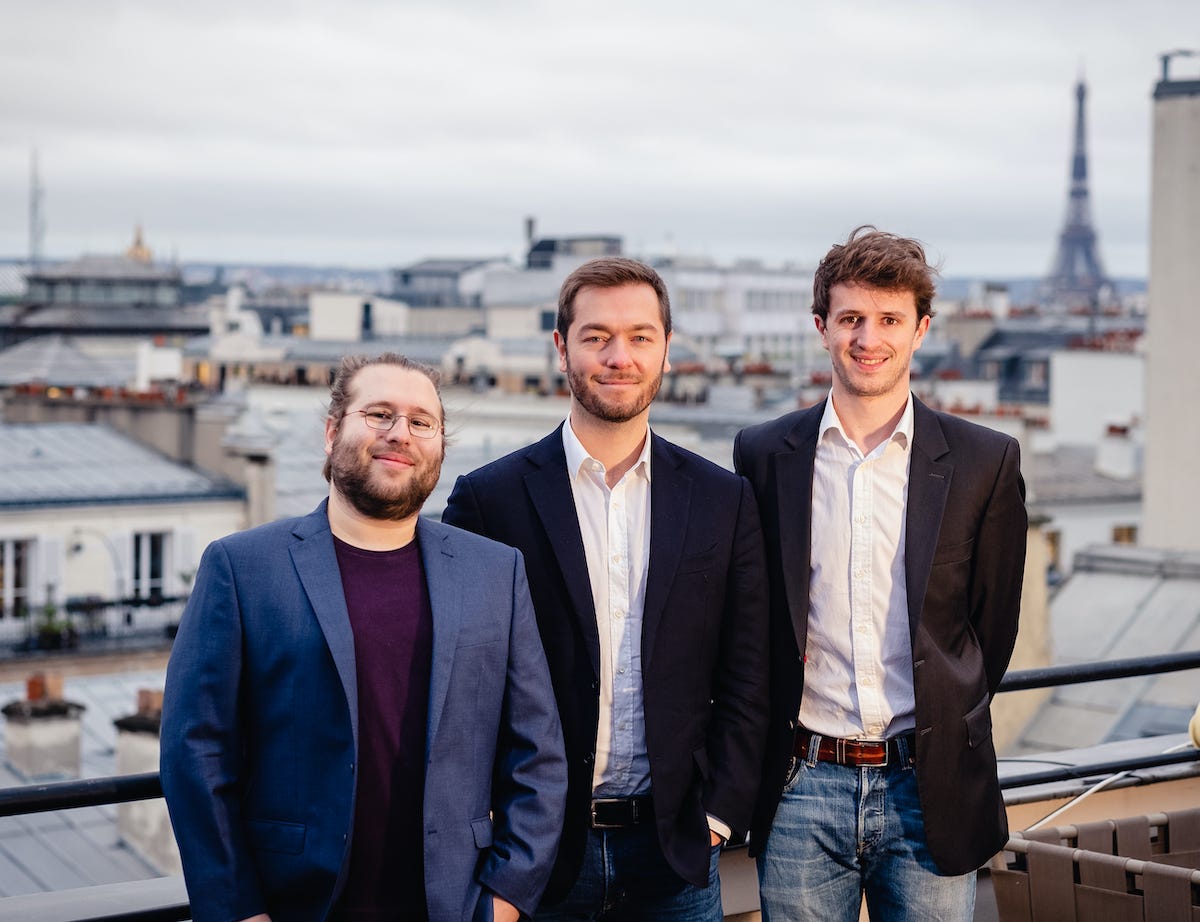French Connections: How Kili Technology Is Going Global
This is the second company co-founded by François-Xavier Leduc and Édouard d’Archimbaud. That experience is a big advantage.
More than 10 years after François-Xavier Leduc and Édouard d’Archimbaud founded their first company together, the pair have reunited to form a startup that has far greater ambitions. Their experience as repeat entrepreneurs and their networks in France are helping them move quickly to build Kili Technology into a global company.
Today, Kili announced it has raised a Seed round of funding totaling $7 million. I wrote about Kili for VentureBeat and you can check out that story for a closer look at how the company is using AI to help companies annotate their data.
“Two years ago, the data annotations market was estimated to be $2 billion in four years,” Leduc told me. “And now it’s estimated to be $4 billion. It’s going to go fast and it will definitely be huge. And it’s a new category. So there is an opportunity to be a worldwide leader. Today, we are positioned as to be one of them.”
Such global champions still remain rare in France despite the growing entrepreneurial movement. But the fast start by the Kili co-founders shows how an expanding roster of repeat and experienced entrepreneurs are forming an important stepping stone toward realizing that goal.
Kili is using technology that d’Archimbaud helped developed while running the AI lab for BNP Paribas. Sensing he was on to a big idea, he started to talking to Leduc about forming their own company. Given their experience and resources, the pair decided to bootstrap the company until they were sure they had a minimal viable product.
Over the past year, it seemed clear that they did as they signed up large enterprise customers in the U.S., China, and Europe. That put them in the driver’s seat when it came time to think about raising money.
“In this kind of process, when you have the traction, the power is on the entrepreneur’s side,” Leduc said. “We have been very, very lucky in the whole decision process to have the capability to choose who we wanted to go with.”
In this case, Kili signed an investment deal led by Paris-based Serena Capital and U.S.based e.ventures. They wanted a partner in each country to help leverage their knowledge of the geographies but also with long track records working with software and data startups.
Just as notable, however, is the roster of business angels who joined the round. This includes Datadog CEO Olivier Pomel, Algolia CEO Nicolas Dessaigne, and Devoteam CEO Stanislas de Bentzmann. Not only do they all have data-related experience, but of course all three angels are French. That’s a strong sign of how expanding French networks in specific categories can potentially reinforce and boost each other through money but also advice and mentorship from those who have already built international companies.
That will come in handy as Kili moves ahead. The company has 15 employees and hopes to have 30 in a couple of months. And it intends to move from “10s of customers” now to “100s of customers” in 12 months. That’s a big scaling challenge.
That means growing Kili’s technical talent while also really starting to build a sales team.
“What is really critical today is to find the right talent, people with the right ambition, who are smart and are able to have a strong impact on key areas very fast,” Leduc said.
On the technical side, there is a strong focus on France’s AI ecosystem.
“In France, we have an amazing pool of talents, especially in AI,” d’Archimbaud said. “That's why all the GAFAs have developed AI labs here. The engineers are amazing and super cheap compared to the U.S. I think it's definitely an unfair advantage.”
Because the pandemic has meant the team is mostly working virtually, the co-founders are already casting a wide geographic net for sales talent.
“I'm currently discussing with people in Israel and the U.S. to join the team,” Leduc said. “These people have a different mindset than ours. Our market is global from the very beginning. So today, all language in the company is English and we already have a number of non-French speakers in the company. Our vision is that we need to get talent wherever they are to make sure we can succeed globally.”
In other news…
In my latest story for Sifted.eu, I interviewed Glose CEO Nicolas Princen on the slow approach he took to building the social e-reading app. Medium acquired Glose earlier this month in a surprising deal that generated international attention.
On building Glose, Princen said:
“We were very, very frugal at the beginning,” Princen said. “We knew it would be hard to raise capital on something because of all the obstacles. Ebooks were not the most VC friendly business. And we weren’t going for a shiny new thing like subscriptions. We saw several companies rise and fall with that model.”
The big picture: There is more than one way to build a startup. That’s easy to forget when everyone is trying to replicate the Silicon Valley model of starting fast, growing quickly, and grabbing as much venture capital as possible. That works great in some cases, but it can also be a trap. Glose succeeded on its own terms by having a clear vision and culture that resulted in a notable exit.
If you’re enjoying The French Tech Journal, please support the project by forwarding it to friends and sharing it on your social networks. You can comment on this post or by replying to this email. And if you have ideas for stories, tips, or just want to harass me, send me an email: chris@frenchtechjournal.com.




